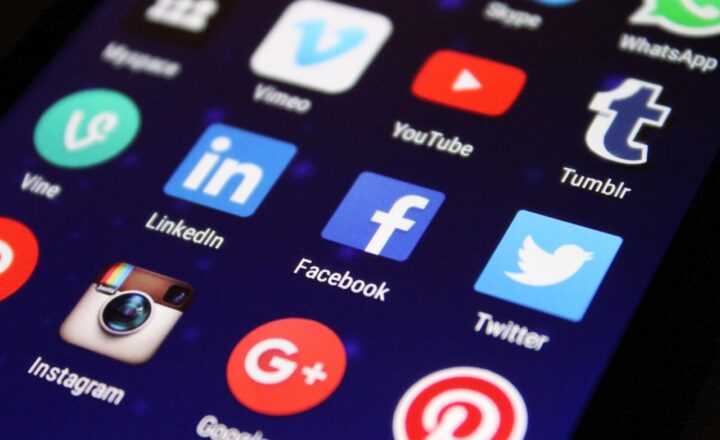The Internet’s Role in Creating and Preserving Modern Folklore and Urban Legends
November 17, 2024

Folklore has always been a fascinating aspect of human culture, passing through generations as stories that often reflect the values, fears, and beliefs of a community. With the advent of the internet, the dynamics of folklore have shifted dramatically. In this article, we will explore how the internet has become a powerful medium for both creating and preserving modern folklore and urban legends.
1. Defining Modern Folklore and Urban Legends
Folklore consists of the traditional beliefs, customs, stories, songs, and practices of a community. It can encompass various forms of expression, including myths, legends, tales, and proverbs. On the other hand, urban legends are specific types of folklore that often convey cautionary tales. They usually possess a contemporary setting and involve contemporary figures or events, making them relatable to modern society.
Examples of modern urban legends include:
- The story of the killer in the backseat.
- The mysterious vanishing hitchhiker.
- The email chain letters warning about viruses or scams.
These narratives have evolved through oral storytelling traditions, but the internet has given them newfound life and reach.
2. The Explosion of Urban Legends on Social Media
Social media has become a breeding ground for urban legends. Platforms like Twitter, Facebook, and Instagram allow stories to spread rapidly among users, often leading to viral content. Posts sharing personal anecdotes or cautionary tales can easily motivate others to share, resulting in a ripple effect that turns local stories into national phenomena.
For instance, consider the Slender Man legend, which originated on an online forum in 2009. It began as a meme, with users creating creepy images and stories around this fictional character. Over the years, it transcended various media, being featured in movies, video games, and even inspiring real-life crimes, illustrating the internet’s power to turn folklore into a shared cultural experience.
3. Internet Forums and the Birth of New Legends
Forums such as Reddit, 4chan, and others facilitate the creation of new urban legends by providing a space for users to anonymously share stories and ideas. The lore often grows organically as community members contribute their interpretations, details, and experiences related to a core narrative. These contributions can include:
- First-person accounts transforming folklore into relatable narratives.
- Community discussions that help refine and expand upon the original story.
- Creative reinterpretations that add new layers to established legends.
An example of this is ‘Creepypasta’ – a genre of user-generated horror stories shared on the internet, often framed around urban legends. These stories, ranging from “Ben Drowned” to “Jeff the Killer,” showcase how the internet can both create and proliferate urban legends, often taking on a life of their own.
4. Preservation Through Digital Documentation
While the internet is a catalyst for creating new folklore, it is also essential for preserving older legends. Various aspects contribute to this preservation:
- Archiving: Websites, forums, and social media posts serve as archives for previous discussions and stories, ensuring that folklore is not lost over time.
- Digital Storytelling: Short videos, podcasts, and graphic novels can reinterpret and share classic tales in contemporary formats, appealing to new audiences.
- Accessibility: Information about cultural folklore that may have been restricted to specific geographic locations can now reach audiences globally through the internet.
Sites like Wikipedia provide extensive coverage on various urban legends, offering explanations, origins, and cultural significance that can last for future generations, creating a newfound appreciation for these stories.
5. The Role of Memes in Folklore Evolution
Memes have emerged as a unique form of internet folklore, allowing for rapid dissemination and modification of ideas, phrases, and images. A single meme can encapsulate complex ideas and emotions in a humorous or engaging way. This shared response to cultural phenomena creates modern tales that can evolve within hours.
For example, the phrase “Distracted Boyfriend” has morphed into various contexts and narratives. Through modifications, users personalize this meme to convey relationship issues, societal commentary, or even corporate critiques, blending elements of modern life with folklore symbolism.
6. Cautionary Tales in the Digital Age
Cautionary urban legends, whether old or new, often contain elements of moral lessons. In the internet age, the evolution of these tales leads to a heightened sense of caution regarding technology and online behavior. Stories about online scams, cyberbullying, and personal safety are shared across social media platforms, becoming urgent discussions in modern society.
Examples include guardian tales surrounding online dating, warnings about sharing personal information online, or urban legends about people who fell victim to online scams. These cautionary tales serve as reminders to navigate the web safely and responsibly.
7. The Impact of Globalization on Folklore
Global connectedness through the internet has also allowed folklore to transcend geographic boundaries. Stories from different cultures intermingle, leading to an amalgamation of narratives that may retain some local flavors while inviting broader interpretations.
As a result, traditional tales from one culture may evolve and provide material for urban legends in another. This cross-pollination creates an enriched tapestry of modern folklore, where diverse voices can be heard, and familiar stories give rise to entirely new legends.
Conclusion
The role of the internet in creating and preserving modern folklore and urban legends cannot be overstated. Through social media, forums, memes, and digital documentation, folklore thrives in a contemporary context that resonates with our current society. The interactions through the digital space not only facilitate storytelling but also highlight the evolving nature of narrative tradition in the modern world.
As the internet continues to evolve, so too will the stories we tell. They will reflect societal changes, technological advancements, and the inherent human need to communicate our fears, hopes, and experiences. This continuous evolution will enrich our cultural heritage, ensuring that folklore remains a vital aspect of our shared human experience.








